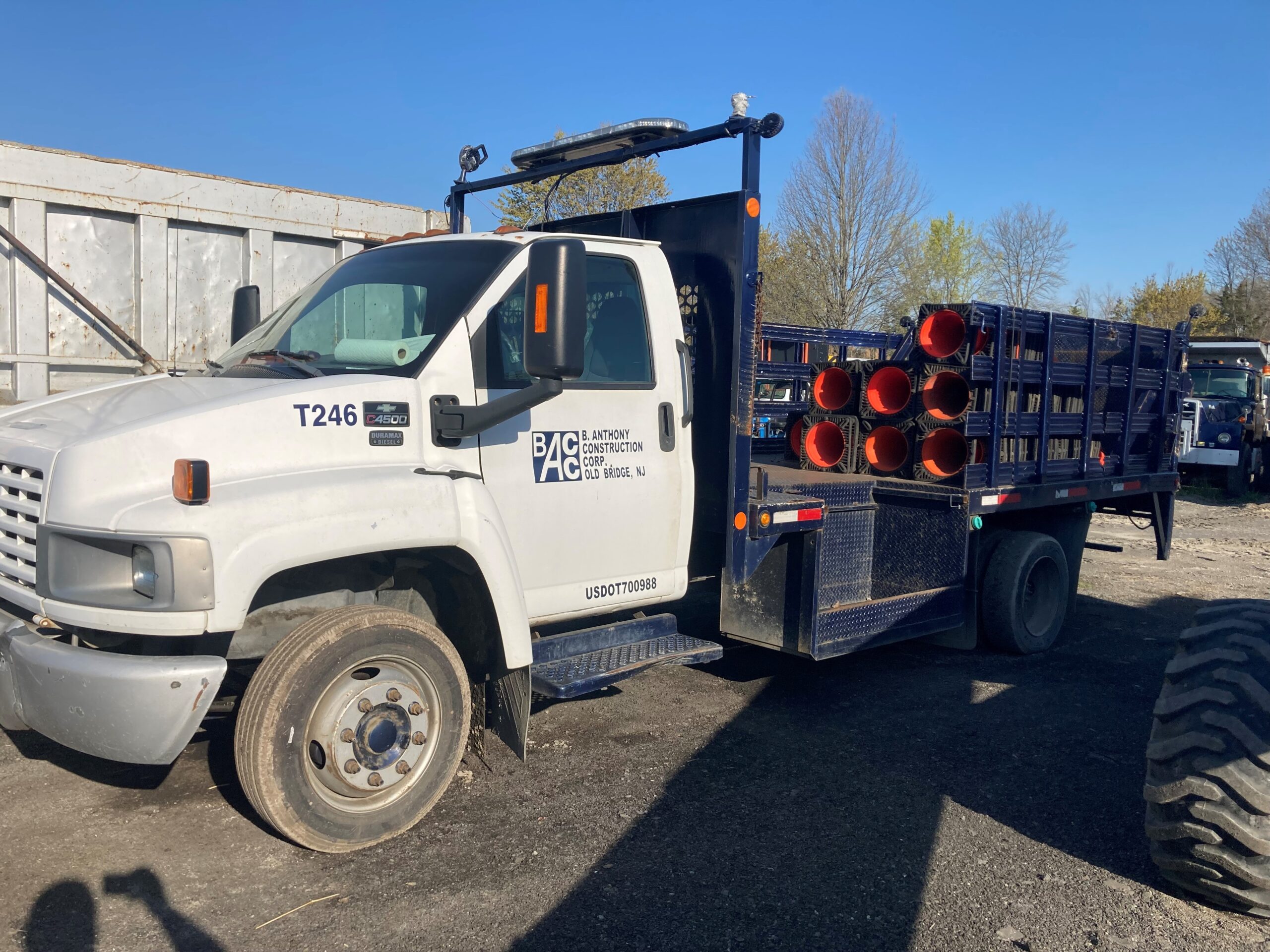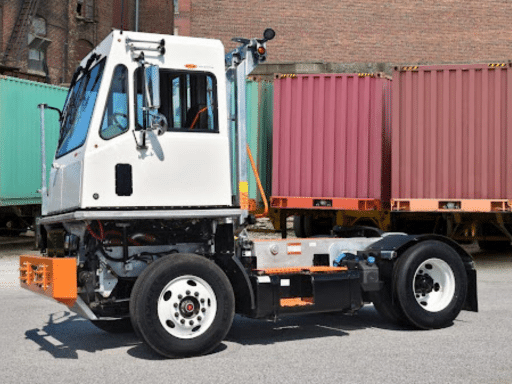The Ultimate Guide to Yard Trucks: Optimizing Efficiency in Material Handling
Yard trucks, also known as terminal tractors, shunt trucks, or spotters, are the unsung heroes of material handling. These specialized vehicles play a crucial role in streamlining operations within warehouses, distribution centers, ports, and rail yards. They efficiently move trailers and containers over short distances, maximizing throughput and minimizing downtime. This in-depth guide will explore everything you need to know about yard trucks, from their various types and applications to maintenance best practices and future trends.
Okay, here's a comprehensive blog article about yard trucks, tailored for a specialist audience and optimized for search engines and readability.
Why Yard Trucks Are Essential for Modern Logistics
In today's fast-paced logistics landscape, efficiency is paramount. Yard trucks offer significant advantages over traditional over-the-road tractors for intra-facility movements.
- Increased Maneuverability: Yard trucks are designed with a shorter wheelbase and tighter turning radius, allowing them to navigate congested areas with ease. This agility is crucial for maximizing space utilization and minimizing the risk of accidents.
- Enhanced Safety: Features like elevated cabs provide drivers with superior visibility, reducing blind spots and improving overall safety. Specialized coupling systems also streamline trailer connections and disconnections, minimizing the risk of injuries.
- Optimized Efficiency: Yard trucks are purpose-built for repetitive, short-distance movements. This specialization translates to faster turnaround times, reduced fuel consumption, and lower overall operating costs compared to using over-the-road trucks for the same tasks.
- Reduced Wear and Tear on Over-the-Road Trucks: By handling intra-facility movements, yard trucks free up over-the-road trucks for their intended purpose: long-haul transportation. This reduces wear and tear on these vehicles, extending their lifespan and minimizing maintenance costs.
Types of Yard Trucks: Choosing the Right Model for Your Needs
The yard truck market offers a variety of models, each designed to meet specific operational requirements. Understanding the different types is crucial for selecting the right truck for your application.
- Standard Yard Trucks: These are the most common type of yard truck, ideal for general-purpose trailer spotting and movement. They typically feature a fifth-wheel coupling system and a powerful engine.
- Elevating Fifth-Wheel Yard Trucks: These trucks have a hydraulically operated fifth wheel that can be raised and lowered, allowing them to handle trailers with varying heights. This versatility is particularly useful in facilities with diverse trailer fleets.
- Gooseneck Yard Trucks: Designed for moving trailers with gooseneck hitches, these trucks are commonly used in agricultural and construction applications.
- Electric Yard Trucks: As sustainability becomes increasingly important, electric yard trucks are gaining popularity. They offer zero emissions, reduced noise pollution, and lower operating costs compared to diesel-powered models.

Key Features to Consider When Selecting a Yard Truck
Choosing the right yard truck involves careful consideration of several key features.

- Engine Power: The engine's horsepower and torque should be sufficient to handle the weight and grade of the trailers being moved. Consider the operating environment and typical load weights when making this decision.
- Transmission: A smooth and reliable transmission is essential for efficient operation. Automatic transmissions are generally preferred for yard truck applications due to their ease of use and reduced driver fatigue.
- Fifth-Wheel Capacity: The fifth-wheel's load capacity should be adequate for the heaviest trailers being moved. Exceeding the capacity can lead to premature wear and tear or even catastrophic failure.
- Cab Design: The cab should be ergonomically designed to provide the driver with a comfortable and safe working environment. Key features to look for include adjustable seats, good visibility, and intuitive controls.
- Safety Features: Prioritize safety features such as anti-lock brakes (ABS), traction control, and backup cameras. These features can help prevent accidents and protect drivers and equipment.
- Turning Radius: A tighter turning radius allows for better maneuverability in confined spaces.
Maintenance Best Practices for Yard Trucks
Proper maintenance is crucial for maximizing the lifespan and performance of your yard trucks. Regular inspections, preventative maintenance, and timely repairs can help prevent costly breakdowns and ensure safe operation.
- Daily Inspections: Conduct daily inspections of key components such as tires, brakes, lights, and fluid levels. Report any issues immediately.
- Preventative Maintenance: Follow the manufacturer's recommended maintenance schedule for oil changes, filter replacements, and other routine services.
- Tire Maintenance: Maintain proper tire pressure and inspect tires regularly for wear and damage. Replace worn tires promptly to ensure optimal traction and safety.
- Brake Maintenance: Inspect brakes regularly for wear and damage. Replace brake pads and rotors as needed to maintain optimal braking performance.
- Fluid Level Checks: Regularly check and maintain proper fluid levels for engine oil, coolant, transmission fluid, and hydraulic fluid.
- Battery Maintenance: Keep batteries clean and properly charged. Replace batteries as needed to ensure reliable starting power.
- Record Keeping: Maintain detailed records of all maintenance and repairs. This information can be valuable for tracking performance, identifying potential problems, and making informed decisions about equipment replacement.
Pro tips from us: Based on my experience, using a dedicated maintenance software can significantly streamline your yard truck maintenance program. These systems can help you track maintenance schedules, manage inventory, and generate reports.
Common mistakes to avoid are: Neglecting preventative maintenance is a common mistake that can lead to costly breakdowns and reduced equipment lifespan. Another common mistake is using unqualified technicians for repairs. Always use qualified technicians who are familiar with yard truck maintenance.
Extending the Life of Your Yard Truck Fleet
Extending the life of your yard truck fleet requires a proactive approach to maintenance, operation, and driver training.
- Driver Training: Provide drivers with thorough training on proper operating procedures, safety protocols, and preventative maintenance. Well-trained drivers are less likely to abuse equipment and more likely to identify potential problems early on.
- Load Management: Avoid overloading yard trucks. Overloading can put excessive strain on the engine, transmission, and other components, leading to premature wear and tear.
- Operating Environment: Minimize exposure to harsh environments. Excessive exposure to dust, dirt, and moisture can accelerate wear and tear on yard trucks.
- Regular Cleaning: Keep yard trucks clean to prevent corrosion and maintain a professional appearance.
- Component Refurbishment: Consider refurbishing major components such as engines and transmissions instead of replacing them entirely. Refurbishment can be a cost-effective way to extend the life of your yard truck fleet.
The Future of Yard Trucks: Technology and Innovation
The yard truck industry is constantly evolving, with new technologies and innovations emerging to improve efficiency, safety, and sustainability.
- Autonomous Yard Trucks: Autonomous yard trucks are being developed to automate trailer spotting and movement. These vehicles use sensors, GPS, and artificial intelligence to navigate the yard and perform tasks without human intervention.
- Electric and Hybrid Yard Trucks: Electric and hybrid yard trucks are becoming increasingly popular as companies seek to reduce their carbon footprint and lower operating costs.
- Telematics: Telematics systems provide real-time data on yard truck performance, location, and driver behavior. This data can be used to optimize operations, improve safety, and reduce fuel consumption.
- Advanced Safety Systems: Advanced safety systems such as collision avoidance and lane departure warning are being integrated into yard trucks to prevent accidents and protect drivers.
Safety Considerations for Yard Truck Operations
Safety should be a top priority in all yard truck operations. Implementing comprehensive safety protocols and providing drivers with thorough training can help prevent accidents and protect workers.
- Traffic Management: Establish clear traffic patterns and speed limits within the yard. Use signage and markings to guide traffic and prevent congestion.
- Pedestrian Safety: Implement measures to protect pedestrians in the yard. Use designated walkways, crosswalks, and warning signals to alert pedestrians to the presence of yard trucks.
- Visibility: Ensure adequate lighting in the yard, especially during nighttime operations. Use high-visibility clothing and reflective tape to make workers more visible to drivers.
- Communication: Establish clear communication protocols between drivers, spotters, and other workers. Use two-way radios or other communication devices to coordinate movements and prevent misunderstandings.
- Training: Provide drivers with thorough training on safe operating procedures, traffic management, and emergency response.
- Personal Protective Equipment (PPE): Require workers to wear appropriate PPE, such as safety glasses, hard hats, and high-visibility clothing.
Choosing a Yard Truck Specialist: What to Look For
When selecting a yard truck specialist for sales, service, or parts, consider the following factors:
- Experience: Choose a specialist with a proven track record in the yard truck industry.
- Expertise: Ensure that the specialist has the technical expertise to handle all your yard truck needs.
- Reputation: Check the specialist's reputation online and ask for references from other customers.
- Service: Look for a specialist that provides excellent customer service and support.
- Parts Availability: Ensure that the specialist has a wide selection of parts in stock to minimize downtime.
- Warranty: Choose a specialist that offers a comprehensive warranty on their products and services.
Conclusion: Investing in Yard Truck Excellence
Yard trucks are indispensable assets for businesses seeking to optimize material handling and streamline operations. By understanding the different types of yard trucks, considering key features, implementing proper maintenance practices, and prioritizing safety, you can maximize the efficiency, lifespan, and value of your yard truck fleet. Investing in yard truck excellence translates to improved productivity, reduced costs, and a safer working environment. The future of yard trucks is bright, with technological advancements promising even greater efficiency and sustainability. Staying informed and embracing these innovations will ensure that your business remains competitive in the ever-evolving logistics landscape.
Internal Links:
- [Insert link to another relevant blog post on your site about warehouse efficiency here]
- [Insert link to another relevant blog post on your site about material handling equipment here]
External Link:
- [Link to a reputable industry organization like the Material Handling Institute (MHI): https://www.mhi.org/]
I believe this comprehensive guide provides a solid foundation for understanding yard trucks and their importance in modern logistics. It's structured for readability, optimized for search engines, and packed with valuable information for yard truck specialists and those looking to improve their material handling operations. Good luck!